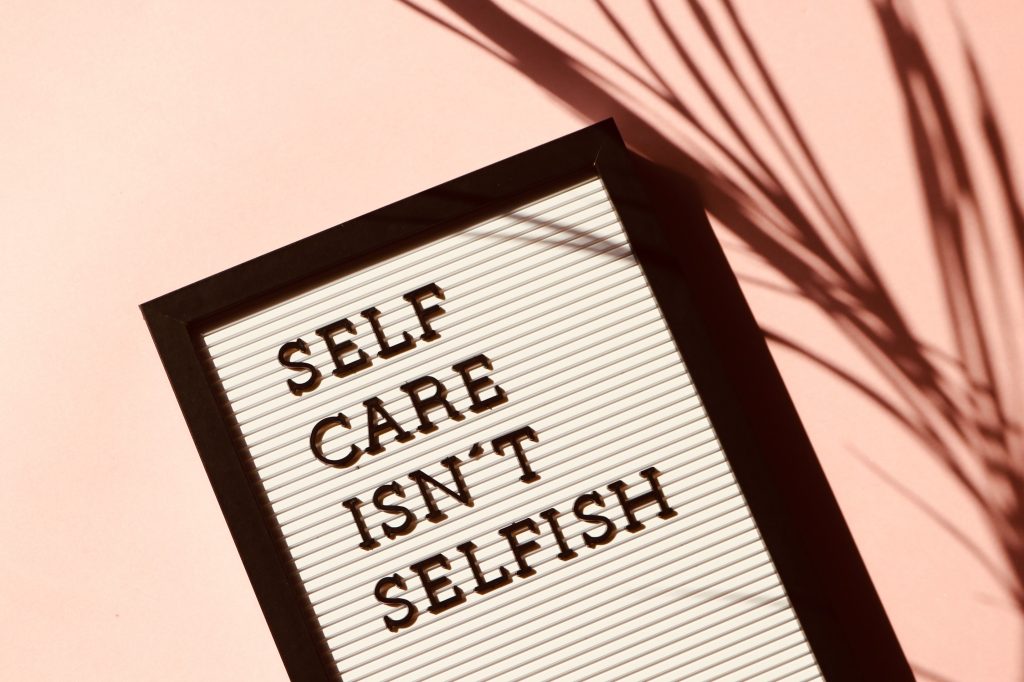By Hetanshi Joshi | mindhamok ambassador.
“The gentlest reminder: You might not need to read another self-help book, attend another training, or bookmark another Instagram post as much as you need to listen to, trust, and practice what you already know. What if the answer you’re looking for is actually within you already?”Lisa Olivera
Your alarm goes off, and it’s time to wake up. It is so bright that you can barely open your eyes. Once you do, you immediately feel that heaviness, that groggy feeling and the fog. It gets worse when that sadness makes you want to stay in your bed.
Instead of breathing in the rays of bright sun and rolling over and stretching your arms over your head to finally have the first sip of your evergreen morning coffee, you feel like laying in your bed and not getting up. Maybe because you are depressed and broken-hearted or, perhaps, you are too distressed to face the challenges of your next 24 hours, it is already making you nervous and, that’s when you create a vivid scene in your mind and think, ‘I GIVE UP’.

Everyone at a certain point in their life thinks of ‘giving up’. Research shows 43 per cent of people expect to give up on their new year’s resolution after just a month. It is hard to follow your goals, especially if you are diagnosed with mental health conditions such as Depression, PTSD, Anxiety; because you feel like the only peaceful option would be to give up on your goal and it’s not your fault if you are thinking this way or if you suffer from any mental health hurdles. In fact, it is okay to feel this way.
WHAT CAUSES THE ‘I GIVE UP’ MINDSET?
If you are emotionally overwhelmed or stressed during this time, chances are, your mental health is deteriorating but, it is not something you should be ashamed of. It may be helpful to invest some time in your mental health.
‘Depression, anxiety and panic attacks are common mental health conditions that can put a person’s physical health and livelihood at risk’ explains Zainal and Michelle G Newman, PhD of Pennsylvania State University.

Psychologists believe that majority of the time, the ‘I GIVE UP’ mentality stems from depression. ‘Often people with these disorders are stuck in the cycle of negative thought patterns and behaviour that can make them feel worse,’ said Newman.
Another prime root cause could be anxiety that makes you feel helpless because you think that you’ve tried and tried and then you are tired of trying, so it makes you want to give up.
Severe Trauma or PTSD can also lead to giving up. Dr John Leach, a senior researcher at the University of Portsmouth, says that when a person thinks there is no escape, they think that the only rational outcome would be to give up.
WHAT MAKES US GIVE UP SO EASILY?
It’s favourable that we incline towards being negative rather than being positive when we deal with mental health challenges.
You get angry when you don’t achieve your target. It’s all the old patterns and habits that make us want to throw in the towel without even giving it a shot. Apart from that, bad experiences in the past, a judgemental society that doesn’t provide social support and chemical imbalances are the most common reasons for giving up so easily.
It also depends on our upbringing. Our parents play a huge role because of the approach they choose with us. Sometimes our parents do not encourage and motivate us to complete certain tasks and they themselves give up on us so early. Meaning that can be a learned behaviour.
WHY YOU SHOULD CONTINUE TRYING HARD?
“In any given moment, we have two options: to step forward into growth or to step back into safety.” — Abraham Maslow
When feeling depressed or anxious; not putting in efforts might be comforting because efforts take energy and probably at that point in time, lying in bed would make you feel better but this satisfaction only remains for so much time and you will face major consequences in the long run such as:
- Regret when you look back in your life.
- Not experiencing that happiness and feeling once you accomplish something.
- Missing out on great opportunities.
- Being depressed and unmotivated.
- Apathy.
You miss out on so many opportunities and amazing life experiences when you give up because the last thing you would want to say when you look back in your life is ‘I wasted the most fruitful period in my life without even giving it a shot!’

HELPFUL TIPS WHEN YOU FEEL LIKE GIVING UP —
“Anyone can give up, it’s the easiest thing in the world to do. But to hold it together when everyone else would understand if you fell apart, that’s true strength.”
Anonymous
- As soon as the thought of giving up occurs in your mind, try to analyse what is causing you to give up. This will help you clear your mind and improve your mood.
- Think why you started. one of the most important steps to achieve your goal is to make a ‘why’ list where you write all those reasons why you want to achieve your goal. If you don’t have a solid reason, it’s best to discard it because it is the Why’s that will motivate you to work hard even during your hardest days.
- Changing the way you approach your goal might be a good idea when the current approach isn’t working. Think of good alternatives to achieve your target and start hustling!
- Finally, reward yourself on completing even the smallest goals like making your bed, eating healthy and working out. This will motivate you to be consistent and give your 100 per cent.
IF YOU STILL FEEL DEPRESSED OR UNMOTIVATED, YOU MAY NEED HELP.
Even after trying so hard, if those ‘I WANT TO GIVE UP’ thoughts won’t go away and you are finding it difficult to figure out which is up or what way to swim, don’t be ashamed to ask for help from your loved ones, friends, or a licensed counsellor. If you are looking for help to accomplish your goals, try our therapy referral, a helpful and inexpensive route for getting assistance and wellbeing support. This will help you regain your happiness and motivate you again.
Mindhamok….supporting you as you cultivate your own unique “hamok” of well-being and growth. Put your mind in a hammock with us.



